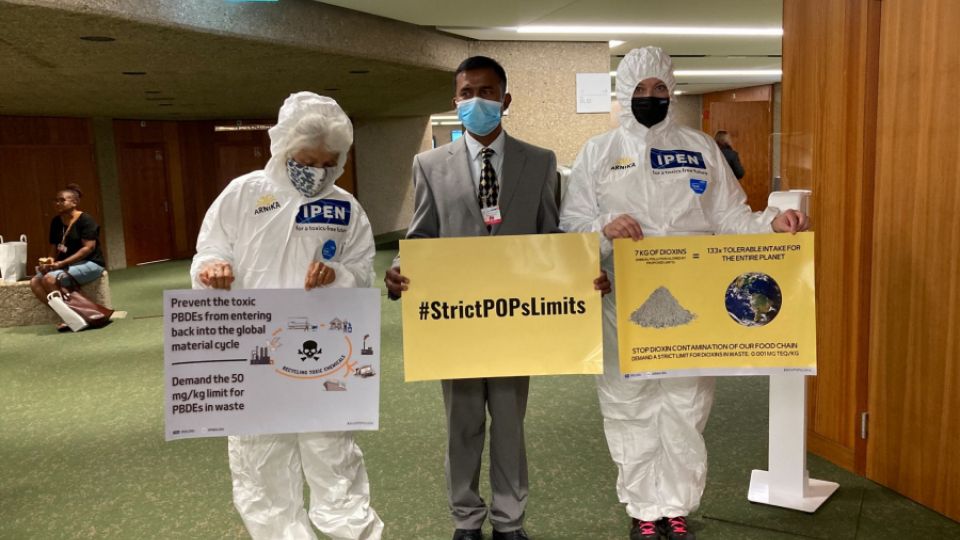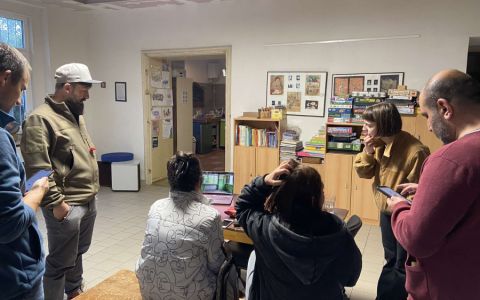An important conference of parties of Basel, Rotterdam, and Stockholm conventions takes place in Geneva these days. Arnika and the International Pollutants Elimination Network organized a side event to help the delegates understand the issues of persistent organic pollutants (POPs) and their impact on the global circular economy.
The event aimed to answer the question of when recycling waste is beneficial for the environment and when it can lead to the recycling of POPs waste, which is not allowed under the Stockholm Convention. We also addressed the question of transboundary movement of POPs wastes and the definition of Low POPs Content levels and provided insights into how to properly deal with POPs waste in a way that minimizes harm to health & environment.
The speakers included representatives of civil society (Jindřich Petrlík – Arnika/IPEN; Semia Gharbi – AEEFG; Gilbert Kuepouo – CREPD; Lee Bell – IPEN), academia (Roland Weber – POPs Environmental Consulting), and delegations of countries that are target destinations of hazardous waste trade (Mohammed Oglah Hussein Khashashneh - President of Rotterdam Convention, Jordan; Lamin Jaiteh - National Environment Agency, Gambia; Roger Baro - Ministère de l'Environnement, de l'Energie, de l'Eau et de l'Assainissement, Burkina Faso; Ameera Ahmed Gouda - Ministry of Environment, Egypt)
We introduced two new studies at the side event. The first one was a peer-reviewed analysis published in the journal Emerging Contaminants. It found that in nearly 90% of the areas studied, levels of dioxins and dioxin-like PCBs in free-range eggs exceed EU regulatory food limits. The second presented study focused on brominated flame retardants in consumer products made of recycled plastic in eleven Arabic and African countries. This study shows that BFRs regulated under the Stockholm Convention can be found in consumer products from markets in Africa and the Arabic region, similar to what has previously been shown in other countries.
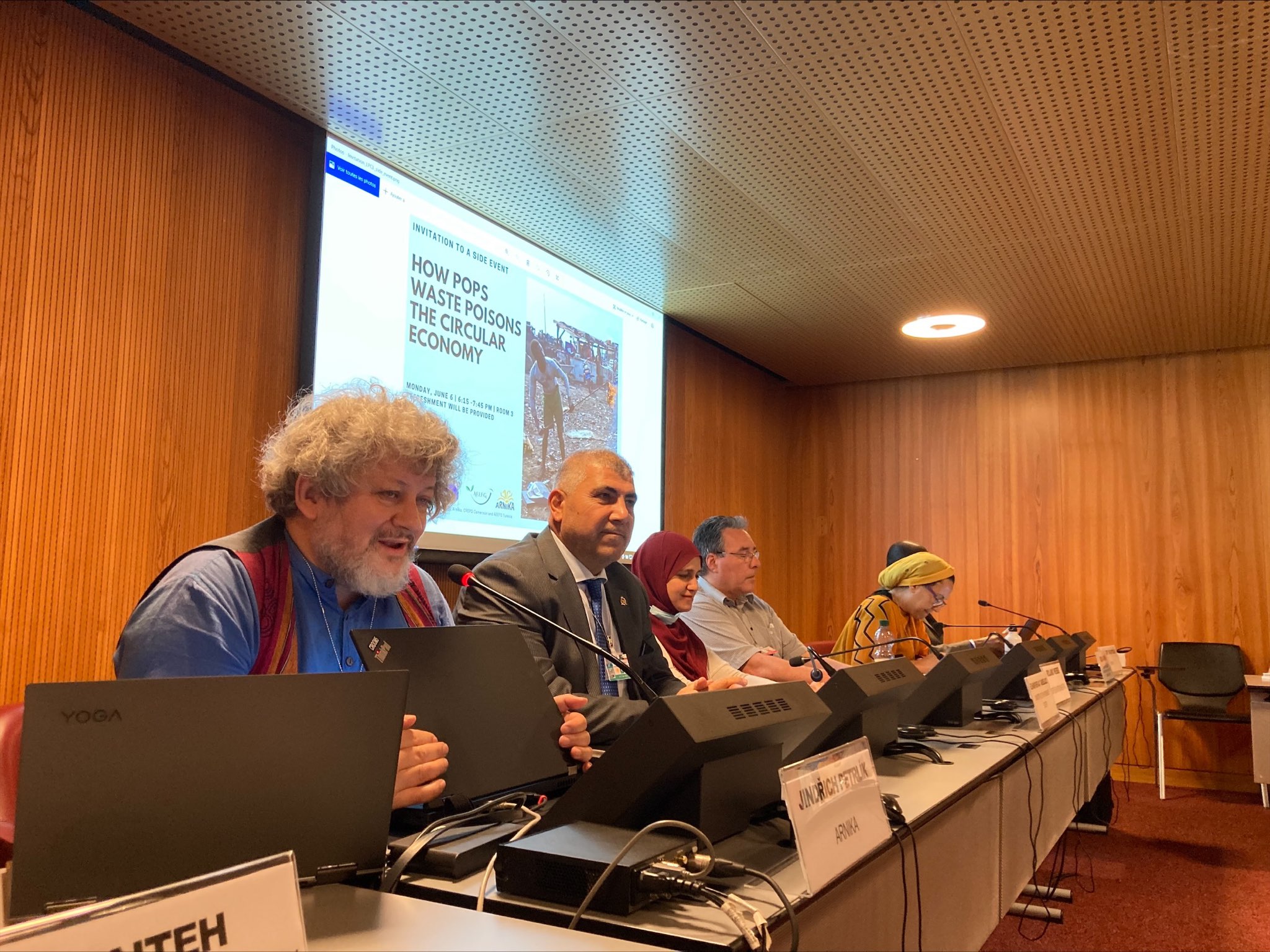 |
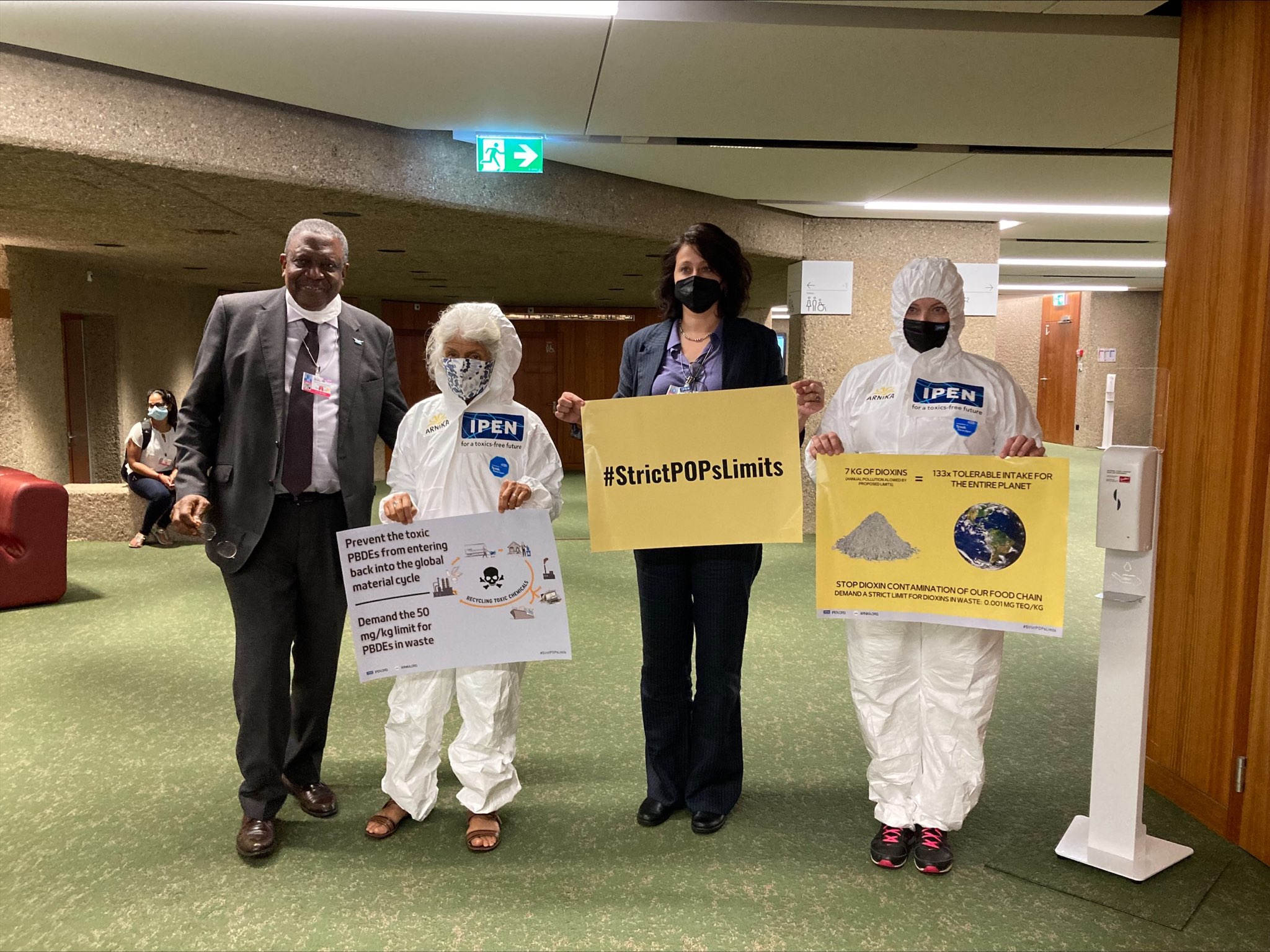 |
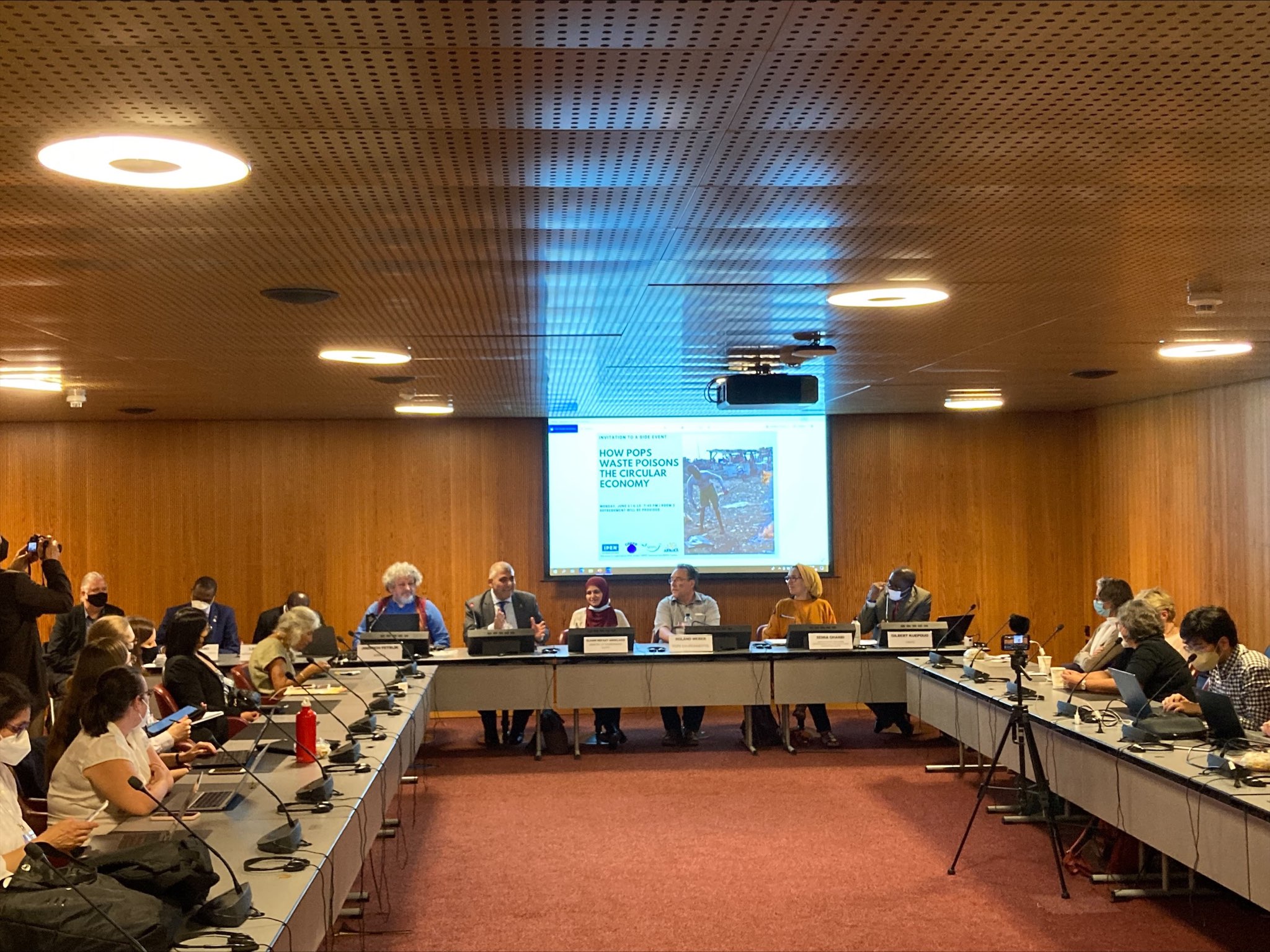 |



